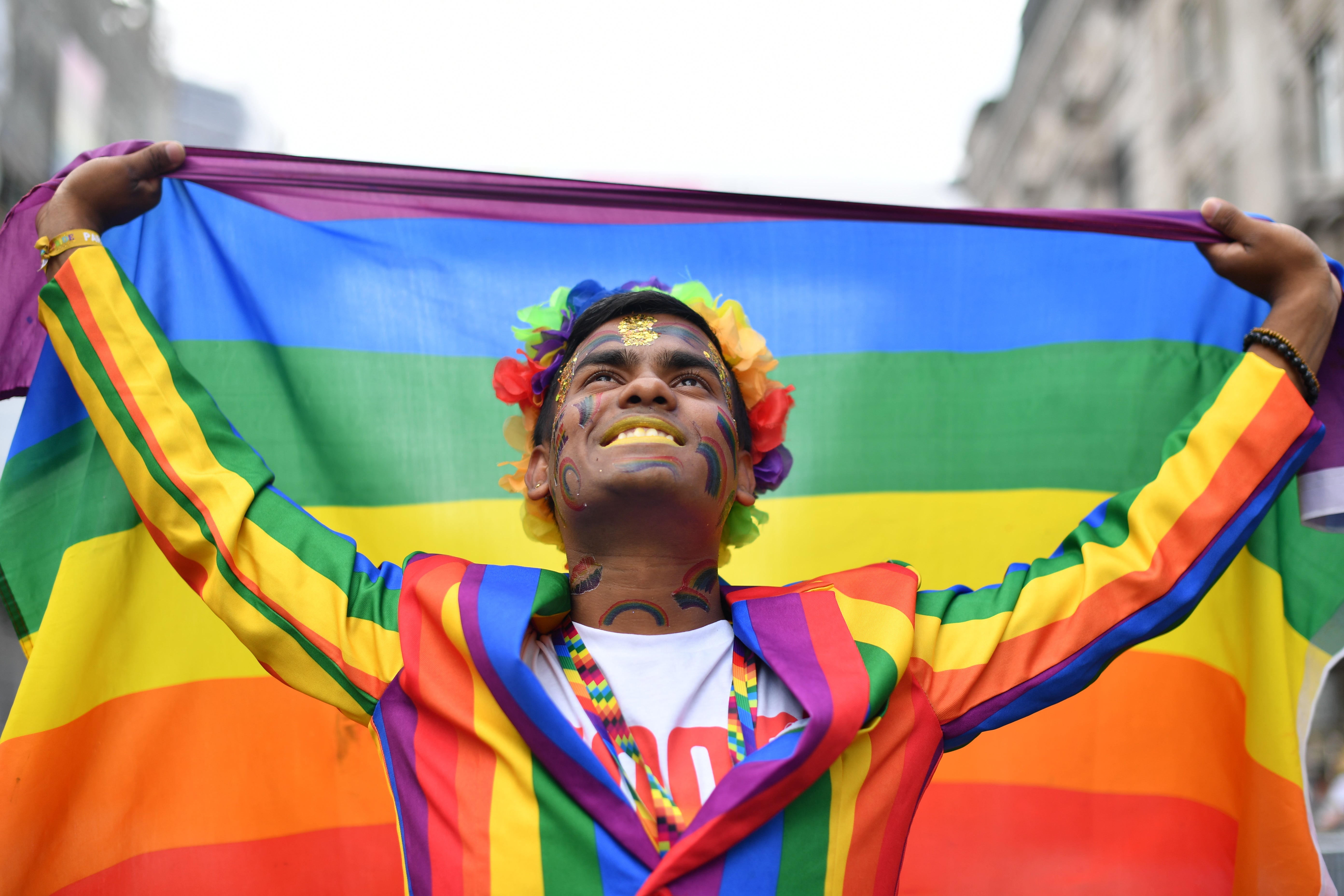Indian state set to be the first to ban ‘conversion therapy’ of LGBT+ individuals
Judge speaks about how he overcame his own prejudice against the LGBT+ community

Tamil Nadu is set to become the first Indian state to ban ‘conversion therapy’ following an unprecedented and progressive judgment by the Madras High Court on Monday, aimed at making society more inclusive towards the LGBT+ community.
Justice N Anand Venkatesh also issued various other reform measures including seeking changes in the school and university curriculum and recommending awareness programmes for judicial officers, police and prison officials in an attempt to understand the community better.
On social media, several commentators called this a fitting tribute to the community during Pride month.
With the court order banning any “attempts to medically cure or change the sexual orientation of LGBTQIA+ people to heterosexual or the gender identity of transgender people to cisgender,” Tamil Nadu in south India is set to be the first state to ban conversion therapy.
Justice Venkatesh issued the order on a plea filed by a lesbian couple who had fled their homes in Madurai because their parents objected to their partnership. The families of the two women then filed a missing person report with the police which led to the couple being interrogated.
The couple then filed a plea with the Madras High Court seeking protection against police harassment and from any threat to their safety and security.
Justice Venkatesh, in the order, reiterated that the LGBT+ community is entitled to their privacy and “have a right to lead a dignified existence, which includes their choice of sexual orientation, gender identity, gender presentation, gender expression and choice of partner thereof.”
The order said, “this right and the manner of its exercise are constitutionally protected under Article 21 of the Constitution.”
In India, even though homosexuality has been decriminalised, prejudice against the queer community is rampant.
Justice Venkatesh, in the court order, also talked about his own “preconceived notions” about the community. In the judgment, he said: “I have no hesitation in accepting that I too belong to the majority of commoners who are yet to comprehend homosexuality completely..... The society and my upbringing have always treated the terms ‘homosexual’, ‘gay’, ‘lesbian’ as anathema.”
He added: “A majority of the society would stand in the same position of ignorance and preconceived notions.”
He also said that he underwent sessions with professionals who specialised in LGBT+ issues “to break his preconceived notions.” In the judgement, he wrote: “This session ultimately convinced me that I must change all my preconceived notions and start looking at persons belonging to the LGBTQIA+ community as they are.”
Meanwhile, the National Medical Commission has been asked to revoke licenses of all those doctors who practice any kind of “conversion therapy” — which is a practice aimed at “correcting” or “fixing” people who identify as queer.
The guidelines also state that the law enforcement bodies and officials shall not interfere in the lives of queer people and their relationships, a welcome move that was celebrated by the community, activists, and allies.
The court order also directed the ministry of social justice and empowerment to maintain a list of all nonprofit organisations working with the LGBT+ community and gave it eight weeks to follow through. The order seeks to establish queer/trans-inclusive shelters within 12 weeks.
These guidelines have been issued to the National Medical Commission, the ministries of health and family welfare, women and child development, and several educational bodies, including the University Grants Commission.
Justice Ventakesh said government departments should implement the guidelines “in letter and spirit not for the sake of complying with a judicial fiat but to ensure that this society evolves, and the LGBTQIA+ community is not pushed out of the mainstream of the society.”
The highly-welcome order also mentioned that schools should sensitise parents on the issues of the community and gender nonconforming students and that necessary amendments must be made to make schools and colleges inclusive.
It also talks about the availability of gender-neutral restrooms, the option of a change of name and gender on academic records for transgender persons. He also directed the appointment of counsellors who are LGBT+ inclusive, conducting awareness programmes for judicial officers and programmes for police and prison officials for protection from and prevention of offences against the community.
Kanimozhi Karunanidhi, a member of parliament, tweeted: “The guidelines ordered by Justice N Anand Venkatesh for safeguarding LGBTQIA+ rights is a remarkable landmark judgement in sensitising society and authorities, and in reducing discrimination.”
She called it a “big step in inclusiveness.” Another user mentioned that the judgment “deserves our salute.” Yet another user expressed his gratitude: “Justice N Anand Venkatesh, you set an extraordinary example of allyship! Thank you for your humility and openness. May your heartfelt words inspire many in India to understand the challenges faced by LGBTQIA+ persons in homes, at work & in public places.”
Subscribe to Independent Premium to bookmark this article
Want to bookmark your favourite articles and stories to read or reference later? Start your Independent Premium subscription today.

Join our commenting forum
Join thought-provoking conversations, follow other Independent readers and see their replies